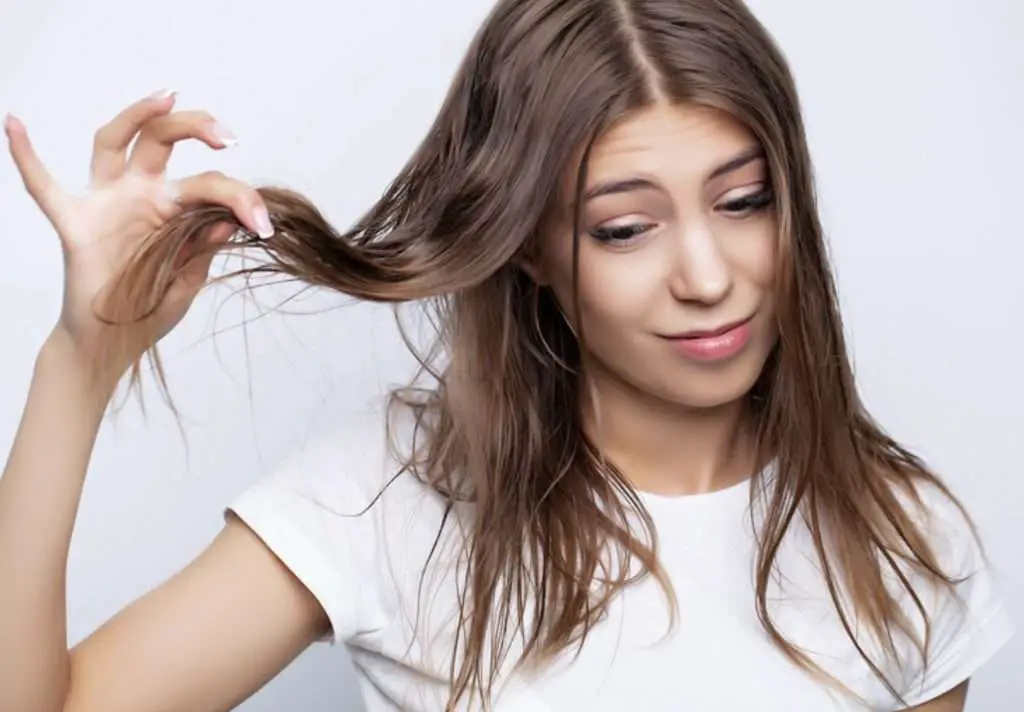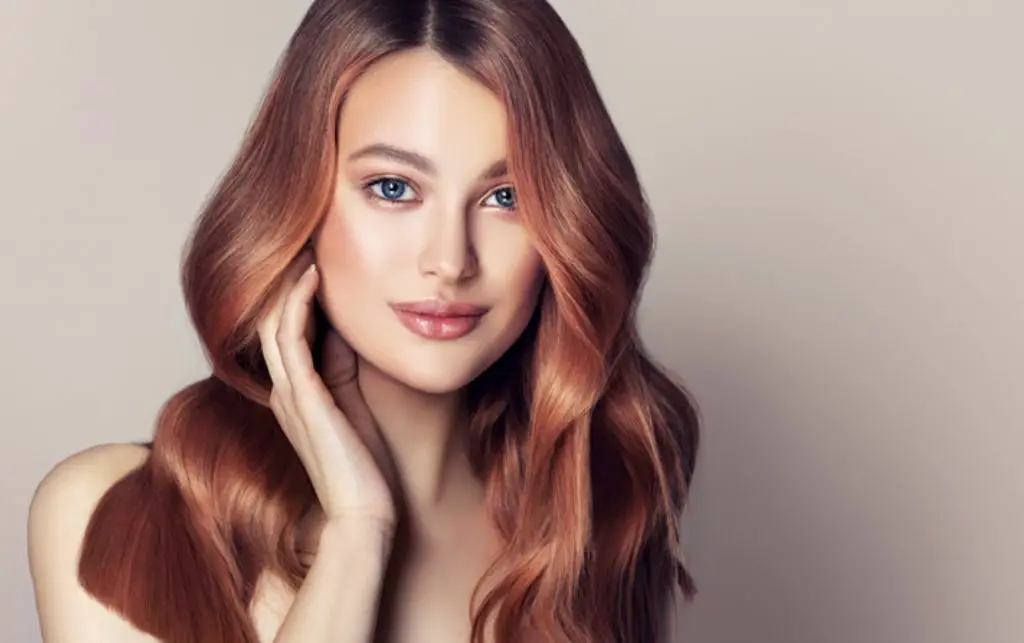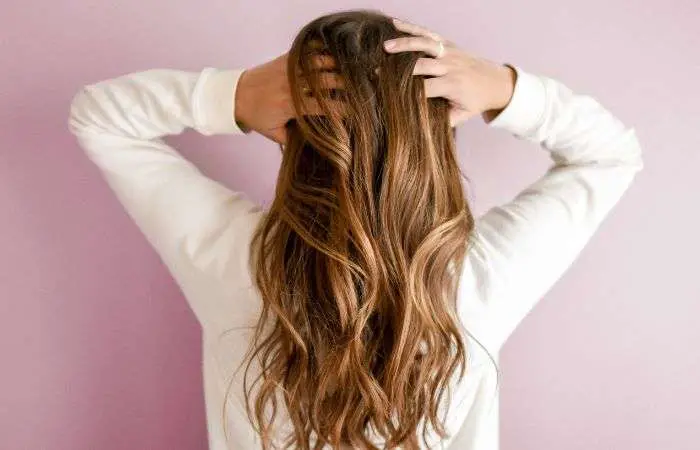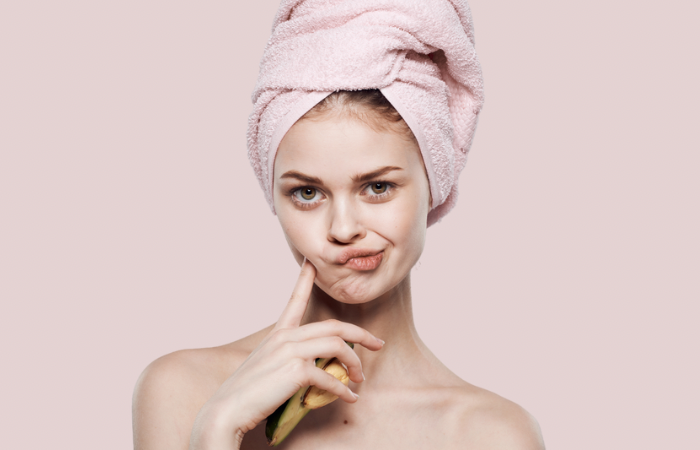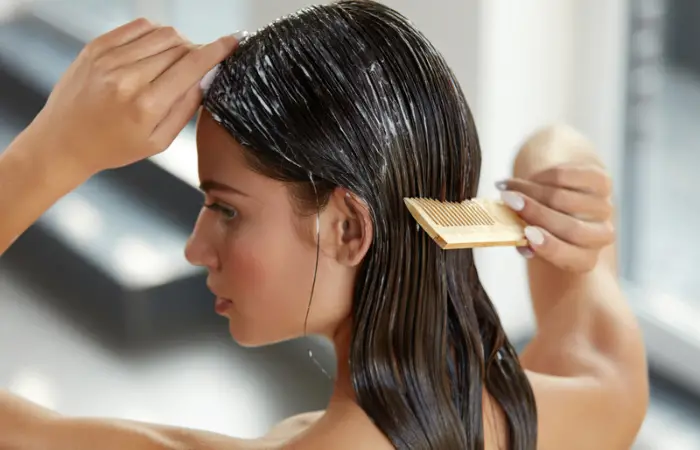If you’ve ever wondered: my hair is greasy, what can I do?… you’re in the right place!
One of the most annoying hair problems is an oily scalp. Interestingly, all scalp anomalies such as hair loss, sensitivity or dandruff can be treated. But greasy scalp can only be controlled!
Your hair is greasy because your sebaceous gland is producing more oil (sebum) than normal. As a result, our scalp starts to feel sticky and unpleasant. When we produce more oil than we should it is usually due to bad hair habits, or chemical issues from stress or hormonal changes.
In this article I will explain in depth why you have oily hair, how to fix it, and several tips that will help make your life much easier. And to control the greasiness of your hair!
My Hair Is Greasy, What can I Do?
The main reason that makes you think: oh no, my hair is greasy! is because it gets oily quickly after washing. This happens due to an accelerated sebum production. In a few words, this means that your scalp is producing more oils that it should. But don’t worry! This can be regulated and controlled to get back to normal.
So first of all, don’t worry! I know that having an oily scalp can be incredibly annoying and worrisome. I myself suffer from oily scalp and it’s horrible when I wash my hair in the morning and by the evening it’s all sticky and shiny. But the good news is that oil can be CONTROLLED!
In my personal case, besides being a woman who suffers from oily scalp, I am a hairdresser specialized in treating hair and scalp anomalies. So I have tried all the solutions that exist today for oily scalp!
So, in this article I will tell you honestly what you can do to solve this oily scalp problem based not only on my personal experience, but on my professional experience helping clients who suffer from the same problem. I assure you that together we will solve the problem of oily hair once and for all!
My hair is greasy [guide to fix it]
There are different reasons why you may be feeling that your hair is greasy. It may be something new or you have always felt this way and to this day you are wondering what is going on. Regardless of how long you have been feeling it, now it is time for you to know the most essential points of oily hair.
This article is organized as follows:
- First we will see how to know if you really have an oily hair problem.
- Then we will see what are the causes of oily scalp.
- Then we’ll look at the best solutions for oily scalp.
- And finally, we’ll take a look at other hair problems you may have as a result of greasy hair.
I hope you find this article helpful!
1. How to know if your hair is greasy
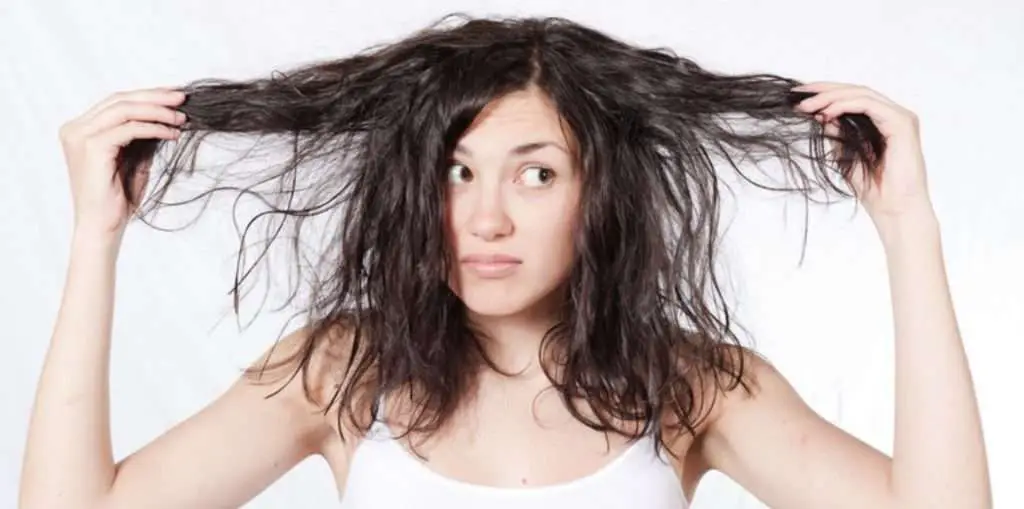
You’re probably wondering if your hair is oily enough to be considered an oil problem. And actually it’s quite easy to know if your hair is greasy.
In 80% of cases oily hair has been that way since always, and you probably remember battling with greasiness constantly. However, in 20% of cases oily hair is caused by poor hair care habits that cause your hair to accumulate oils.
Greasy hair often looks shiny, sticky and flattened. It is quite an uncomfortable feeling as we can even feel our hair fibers pulling apart in a greasy way.
However, to tell that your hair is greasy the most common factors are:
Greasy hair symptoms
These are the most common symptoms identified by people with oily scalp problems:
Itchy hair after washing
If your hair is itchy after washing, it is a clear sign that you are suffering from oil problems. If you produce more oil than normal you will have a hard time removing it all when you wash your hair. Therefore, if you still have oil residue after washing your hair, this creates a barrier on the scalp that usually itches.
Hair gets greasy after one day
Another important symptom of oily scalp is when your hair gets greasy after one day. This is one of the easiest ways to identify oily scalp. If you wash your hair and the next day it looks greasy to the point where you want to wash it out, you have an oily scalp!
Hair feels sticky after washing
If your hair is sticky after washing, you probably have an oily scalp problem. Normally the hair should feel soft, clean and voluminous after washing. Conversely, if you just washed your hair and it feels sticky and flattened, you have oily scalp.
2. The main causes of greasy hair

If you are wondering what causes greasy hair, the truth is that it depends on many factors. You may have oily hair because of genetics, but in most cases the excess oil is caused by several factors.
Having bad hair care habits in your hair routine can accelerate the production of oil on your scalp by up to 70%. In addition, using certain products with oils near the scalp can aggravate the problem as well.
Most common causes of greasy hair
The most common causes that can cause an oily scalp are:
Washing your hair too much
Washing your hair too much is one of the main causes of an oily scalp. The reason is simple, when you wash your hair you remove the oil, and then the sebaceous gland of your scalp is in charge of generating the lost oil again. Therefore, the more often you wash your hair, the more you get your sebaceous gland used to generate more oil.
Using the wrong shampoo
Another of the most common causes of an oily scalp is using the wrong shampoo. The reality is that certain shampoos can cause greasy hair, especially those that are highly nourishing. If your shampoo has a high oil content, instead of just cleansing your hair, it will cause more greasy hair.
Over conditioning your hair
Over conditioning your hair is another common cause of oily hair. The truth is that all conditioners should only be applied from mid-lengths to ends, never near your scalp! If you apply them close to the scalp you will only grease the roots of your hair and aggravate the problem. Likewise, if you use other treatments or styling products close to the roots of your hair you will not only cause greasiness, but also white buildup which can lead to hair loss problems.
Using hot water to wash your hair
Hot water is bad for your hair, specially if you have oily hair as it accelerates and increases the production of oil from the sebaceous gland of our scalp. The truth is using very hot water is bad for your hair, and can cause various scalp problems. Like too much greasiness!
Too much stress
If you are going through a season under a lot of stress and anxiety, it is likely that you notice your hair is greasier than usual. Stress can cause greasy hair because it increases your body’s cortisol levels, which causes the sebaceous glands to produce more oil than they should. This will result in a greasier than normal scalp.
READ MORE >> Why does my scalp itch after applying oil?
3. How to make your hair less greasy
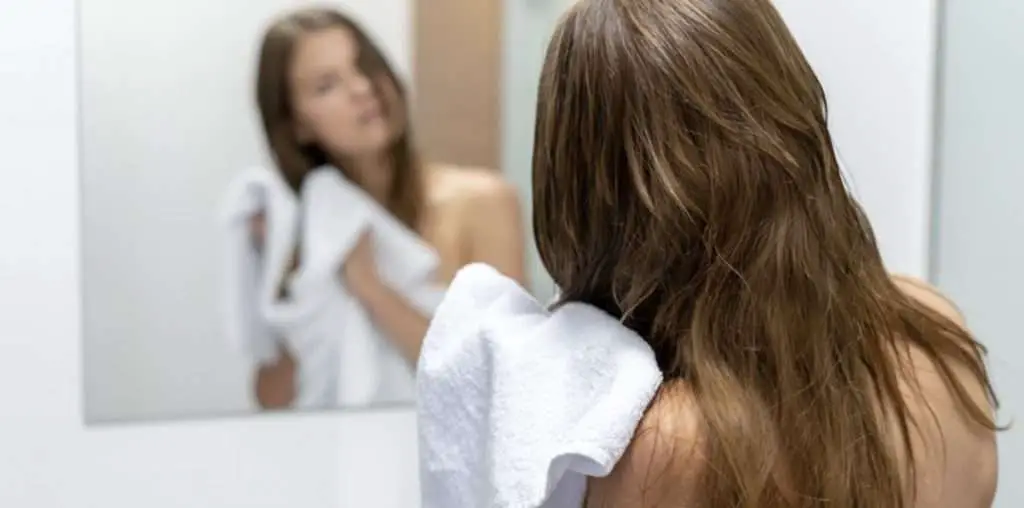
If you want to know how to make your hair less greasy, read on. Now that you know if your hair is greasier than normal and what’s probably aggravating the problem, it’s time to get rid of the grease from your hair once and for all!
To do this, the most important thing is to get into a specific hair care routine so you can prevent and control the appearance of greasy hair. Once you start taking care of your hair, you will see that in a couple of weeks your hair will feel quite balanced and free of excess oil.
The best solutions for greasy hair
Now that you know the most likely causes of oily hair, it’s time to learn how to control the oiliness of your hair and scalp:
Learn how to wash your hair properly
The first way to eliminate grease is to know how to wash your hair properly. Correcting and improving your hair washing habits makes a world of difference in controlling the appearance of greasy hair.
The most important tips to keep in mind are:
- Wash your hair 2 to 3 times a week. If you wash it daily you will only generate more oil, and if you wash it only once a week it will not be enough to remove the layers of oil on your scalp.
- When washing your hair, avoid using water that is too hot as it will accelerate the production of oil from the sebaceous gland.
- Use an oil leveling shampoo such as Kerastase Divalent shampoo. This way, you will remove up to 5 times more residue from your scalp while taking care of your hair.
- Always wash your hair twice to remove all the residues from your scalp.
- Use the conditioner only from mid-lengths to ends so that it does not grease the roots of your hair.
Remove Hair build up Regularly
The second important point in taking care that your hair does not become too greasy is to remove excess build up by deep cleansing the scalp. To remove the build up from your hair I recommend that you do a scalp exfoliation every two weeks.
I recommend that you use the Kerastase Scrub so you can remove all the oil from your hair. This scrub will exfoliate all the residue from your scalp and help you keep your hair cleaner for longer.
The best way to apply this product is to use it on dry scalp and massage vigorously with your fingertips. Once you have rubbed this product on all areas of your scalp, wet it with water and you can wash your hair with the same product since the scrub can be used as a shampoo.
Learn how to apply conditioner
Learning how to apply conditioner is an important step in any hair care routine, but it’s especially crucial for those with oily hair. That’s why, using too much or applying it incorrectly can contribute to the greasiness.
To avoid making your hair greasier, start by choosing a conditioner that’s formulated for oily hair. These formulas are usually lighter and less moisturizing than traditional conditioners, which can weigh down your hair and make it appear greasy.
When applying the conditioner, focus on the ends of your hair and avoid applying it directly to your scalp. Applying conditioner to the roots can lead to buildup and make your hair look greasy faster. Instead, apply it from mid-length to the ends of your hair, where it’s most prone to dryness.
Another tip is to rinse your hair thoroughly after using conditioner. Leftover product can cause buildup and make your hair look greasy faster. Rinse with cool water as hot water can strip away natural oils, causing your scalp to produce more oil.
By following these simple tips, you can help keep your hair looking fresh and grease-free!
4. Hair problems caused by greasy hair
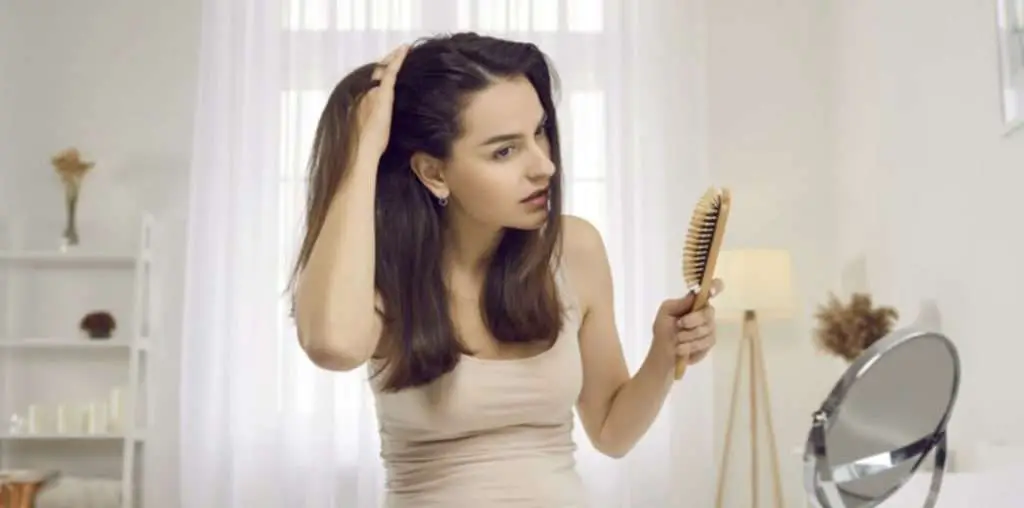
It is important that if you suffer from oily scalp you start treating the problem as soon as possible. The reason? Not only for aesthetic reasons, but because an oily scalp can cause various hair problems that are not at all pleasant! Having oily hair is bad for our hair health.
The main reason why oil causes other scalp problems is because it clogs the hair follicles. Therefore, when we accumulate layers of oil over the long term, we develop other conditions on our scalp.
Greasy hair problems
Now I will show you the 3 most common problems that can be caused by excess oil in your hair:
Hair loss
One of the most common hair problems resulting from an oily scalp is that greasy hair cause hair loss. When we accumulate too much oil on our scalp, our hair follicles begin to clog and lack oxygenation.
This causes the follicles to begin to weaken, and thus our hair begins to fall out. This is why it is important that your scalp is clean and free of oils.
Dandruff
Another of the most common hair problems that arise from an oily scalp is dandruff. If you have a lot of oil on your scalp, it can solidify and form dandruff particles that flake off when they touch your skin.
This type of dandruff is usually yellow in color with larger flakes. If small flakes come off when you rub the skin on your scalp, you should start treating your scalp oil immediately.
Itchy scalp
Greasy hair can also cause an itchy scalp. This problem is quite uncomfortable, as it causes a feeling of constant itching and discomfort on the scalp, even after washing.
In addition, if we scratch our scalp too much because of the itchiness we can injure our skin and cause a more serious sensitivity problem on our skin. Therefore, you should avoid scratching at all costs, especially not with fingernails.
White build up
Finally, greasy hair can cause white build up problems in the scalp. When grease builds up and mixes with hair product residue, it causes greasy white flakes to appear on the scalp.
If this build up is not removed quickly, it can cause all the other problems we have just seen (hair loss, dandruff, itching). So if you start to notice this layer of residue on your scalp, it is important to exfoliate your scalp to remove it.
READ MORE >> How to fix oily hair without washing
Bottom line
I hope that if you came to this article thinking that your hair is oily, you have found the answers and solutions to your problem.
Regulating scalp oil is no easy task! However, once you balance it by following the necessary care you will see that the annoying symptoms of oily hair disappear.
Remember to monitor and treat your oily scalp on an ongoing basis, as it is not a problem that can be cured permanently, but rather controlled.
See you soon!

